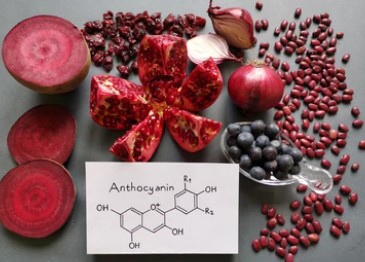
Anthocyanins are of great importance to plants and humans. It can give plants colors, attract various insects to pollinate, disperse seeds, and help plants resist adversity. It also plays a vital role in anti-inflammatory, antibacterial, anti-oxidation, anti-aging, and other aspects. Anthocyanidin synthase (ANS) is a key enzyme in anthocyanin synthesis. With the publication of a large number of plants' ANS genes, more and more botanists began to analyze the biological characteristics of ANS.
Lifeasible is a world-renowned provider of plant bio-services in all aspects of plant research. Based on our professional bioinformatics staff and extensive technical expertise, we offer our clients a customizable bioinformatics analysis service for ANS genes in higher plants.
To identify and analyze the ANS genes of the target plants, we will obtain the ANS gene sequences and ANS amino acid sequences of dozens of higher plants, such as papaya, money orange, sweet orange, apple, peach, and grape, which have been published on NCBI by BLAST method. The phylogenetic analysis, physicochemical property analysis, and structural analysis of the target ANS genes are carried out using the ANS genes of Arabidopsis thaliana as a reference. The target ANS amino acid sequences' subcellular localization, hydrophilicity/hydrophobicity, protein secondary and tertiary structures, and phylogeny are also analyzed.
Use SOPMA to predict the most secondary structure elements of a target ANS.
The ANS nucleotide sequences of these plants are compared in multiple sequences using MEGA 12.0 software, and a phylogenetic tree was constructed using default parameters.
Based on the high homology of ANS genes in different plants, we selected dozens of species to compare the characteristics of ANS genes in the target plants with those in other plants, which is more relevant and informative. Furthermore, we have fully and systematically analyzed the basic properties, protein secondary structure, tertiary structure, and phylogeny of ANS genes in the target plants to provide theoretical support for the mechanism of the role of ANS in the anthocyanin synthesis pathway.

Lifeasible always maintains a customer-focused service philosophy and does its best to provide cost-effective bioinformatics analysis of ANS genes in higher plants. For more information, please contact us directly.
Lifeasible has established a one-stop service platform for plants. In addition to obtaining customized solutions for plant genetic engineering, customers can also conduct follow-up analysis and research on plants through our analysis platform. The analytical services we provide include but are not limited to the following:
Get Latest Lifeasible News and Updates Directly to Your Inbox
Adaptive Evolutionary Mechanism of Plants
February 28, 2025
Unraveling Cotton Development: Insights from Multi-Omics Studies
February 27, 2025